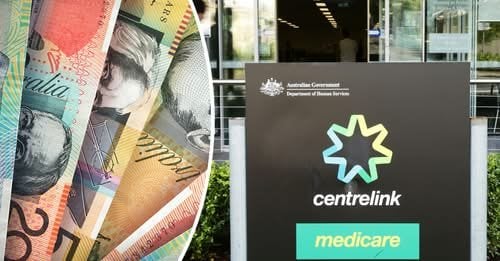New year, new support: Carer allowance and other Centrelink payments to increase for over 1 million Aussies
- Replies 51
As the new year rolls in, it brings with it a wave of financial adjustments that could mean more money in the pockets of over one million Australians.
Centrelink recipients are set to see a significant boost in their payments from January 1. This increase comes as part of the regular indexation adjustments, aimed at providing additional financial support to Australians relying on allowances.
The move is expected to offer much-needed relief to individuals and families facing the pressures of the rising cost of living.
Over one million Australians will receive a financial boost to various welfare payments as indexation adjustments take effect with the new year.
Centrelink payments, including Youth Allowance, Austudy, ABSTUDY, and Carer Allowance, are set to rise starting January 1, 2025.

For those navigating the complexities of student life, the increase in financial support could not come at a better time.
Single Youth Allowance recipients over 18 years old and living at home will see their fortnightly payments increase by $17.30, from $459.80 to $477.10.
This modest boost can help cover the rising costs of textbooks, transport, or even just a little extra for groceries.
For those living away from home, the increase is even more significant. Single and partnered recipients will now receive $670.30 instead of $646, providing a bit more breathing room for rent, utilities, and other living expenses.
Additionally, the parental income test threshold for Youth Allowance is set to rise to $65,189 a year, potentially allowing more young people to qualify for assistance based on their family's financial situation.
Austudy recipients, particularly single individuals with dependent children, will benefit from the most substantial increase.
Their payments will jump by $30.60 to $845.80 a fortnight. Partnered recipients aren't left behind, with their payments increasing by $26.30 to $725.80.
Postgraduate students relying on ABSTUDY will see a significant increase in support, with payments for those undertaking a Master’s degree or a Doctorate rising by $54 a fortnight to $1,231.40.
This is a welcome change that acknowledges the financial pressures faced by those pursuing higher degrees.
The Carer Allowance is also set to increase to $159.30 a fortnight, impacting over 660,000 carers who dedicate their time to supporting others.
This increase is a small token of recognition for their invaluable contribution to society.
Other payments, such as the mobility allowance and double orphan pension, will see increases as well, ensuring that various groups within our community receive the support they need.
Social Services Minister Amanda Rishworth has emphasised that indexation is a crucial tool for adjusting payments in line with changes in the cost of living.
‘We want to reduce disadvantage and maintain Australia’s strong and sustainable social safety net by providing relief to those most in need,’ she stated.
In addition to these increases, the Labor Party has announced plans to wipe $3 billion of student debt for three million Australians.
An additional 20 per cent reduction in student loans, an increase in the minimum repayment threshold, and further cuts to repayment rates have been pledged for 2025, contingent upon the Labor Party being re-elected in next year's federal election.
For a full list of payment increases effective January 1, please visit the Department of Social Services website.
As Centrelink recipients prepare to benefit from increased payments starting January 1, it’s also crucial to stay informed about the payment schedule during the holiday period.
Services Australia has released the timetable to ensure that everyone receives their benefits on time, avoiding any disruptions during this busy season.
 We invite you to share your thoughts on these changes. How will the increased payments affect you or your loved ones? Do you believe the indexation is sufficient to cover the rising cost of living? Join the conversation below and let us know your perspective.
We invite you to share your thoughts on these changes. How will the increased payments affect you or your loved ones? Do you believe the indexation is sufficient to cover the rising cost of living? Join the conversation below and let us know your perspective.
Centrelink recipients are set to see a significant boost in their payments from January 1. This increase comes as part of the regular indexation adjustments, aimed at providing additional financial support to Australians relying on allowances.
The move is expected to offer much-needed relief to individuals and families facing the pressures of the rising cost of living.
Over one million Australians will receive a financial boost to various welfare payments as indexation adjustments take effect with the new year.
Centrelink payments, including Youth Allowance, Austudy, ABSTUDY, and Carer Allowance, are set to rise starting January 1, 2025.

Over 1 million Australians will receive a cash boost to welfare payments due to indexation from January 1, 2025. Credit: Facebook / Yahoo Finance Australia
For those navigating the complexities of student life, the increase in financial support could not come at a better time.
Single Youth Allowance recipients over 18 years old and living at home will see their fortnightly payments increase by $17.30, from $459.80 to $477.10.
This modest boost can help cover the rising costs of textbooks, transport, or even just a little extra for groceries.
For those living away from home, the increase is even more significant. Single and partnered recipients will now receive $670.30 instead of $646, providing a bit more breathing room for rent, utilities, and other living expenses.
Additionally, the parental income test threshold for Youth Allowance is set to rise to $65,189 a year, potentially allowing more young people to qualify for assistance based on their family's financial situation.
Austudy recipients, particularly single individuals with dependent children, will benefit from the most substantial increase.
Their payments will jump by $30.60 to $845.80 a fortnight. Partnered recipients aren't left behind, with their payments increasing by $26.30 to $725.80.
Postgraduate students relying on ABSTUDY will see a significant increase in support, with payments for those undertaking a Master’s degree or a Doctorate rising by $54 a fortnight to $1,231.40.
This is a welcome change that acknowledges the financial pressures faced by those pursuing higher degrees.
The Carer Allowance is also set to increase to $159.30 a fortnight, impacting over 660,000 carers who dedicate their time to supporting others.
This increase is a small token of recognition for their invaluable contribution to society.
Other payments, such as the mobility allowance and double orphan pension, will see increases as well, ensuring that various groups within our community receive the support they need.
Social Services Minister Amanda Rishworth has emphasised that indexation is a crucial tool for adjusting payments in line with changes in the cost of living.
‘We want to reduce disadvantage and maintain Australia’s strong and sustainable social safety net by providing relief to those most in need,’ she stated.
In addition to these increases, the Labor Party has announced plans to wipe $3 billion of student debt for three million Australians.
An additional 20 per cent reduction in student loans, an increase in the minimum repayment threshold, and further cuts to repayment rates have been pledged for 2025, contingent upon the Labor Party being re-elected in next year's federal election.
For a full list of payment increases effective January 1, please visit the Department of Social Services website.
As Centrelink recipients prepare to benefit from increased payments starting January 1, it’s also crucial to stay informed about the payment schedule during the holiday period.
Services Australia has released the timetable to ensure that everyone receives their benefits on time, avoiding any disruptions during this busy season.
Key Takeaways
- Over 1 million Australians will benefit from a cash boost to various welfare payments due to indexation from January 1, 2025.
- Specific increases include Youth Allowance, Austudy, ABSTUDY, and Carer Allowance, with varied rates of increments for different groups.
- The increases are set to assist in keeping up with inflation and are part of an annual adjustment process.
- Social Services Minister Amanda Rishworth highlighted that indexation is aimed at reducing disadvantage and providing relief in line with the cost of living changes.







